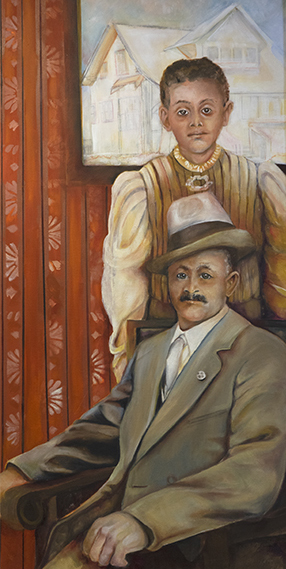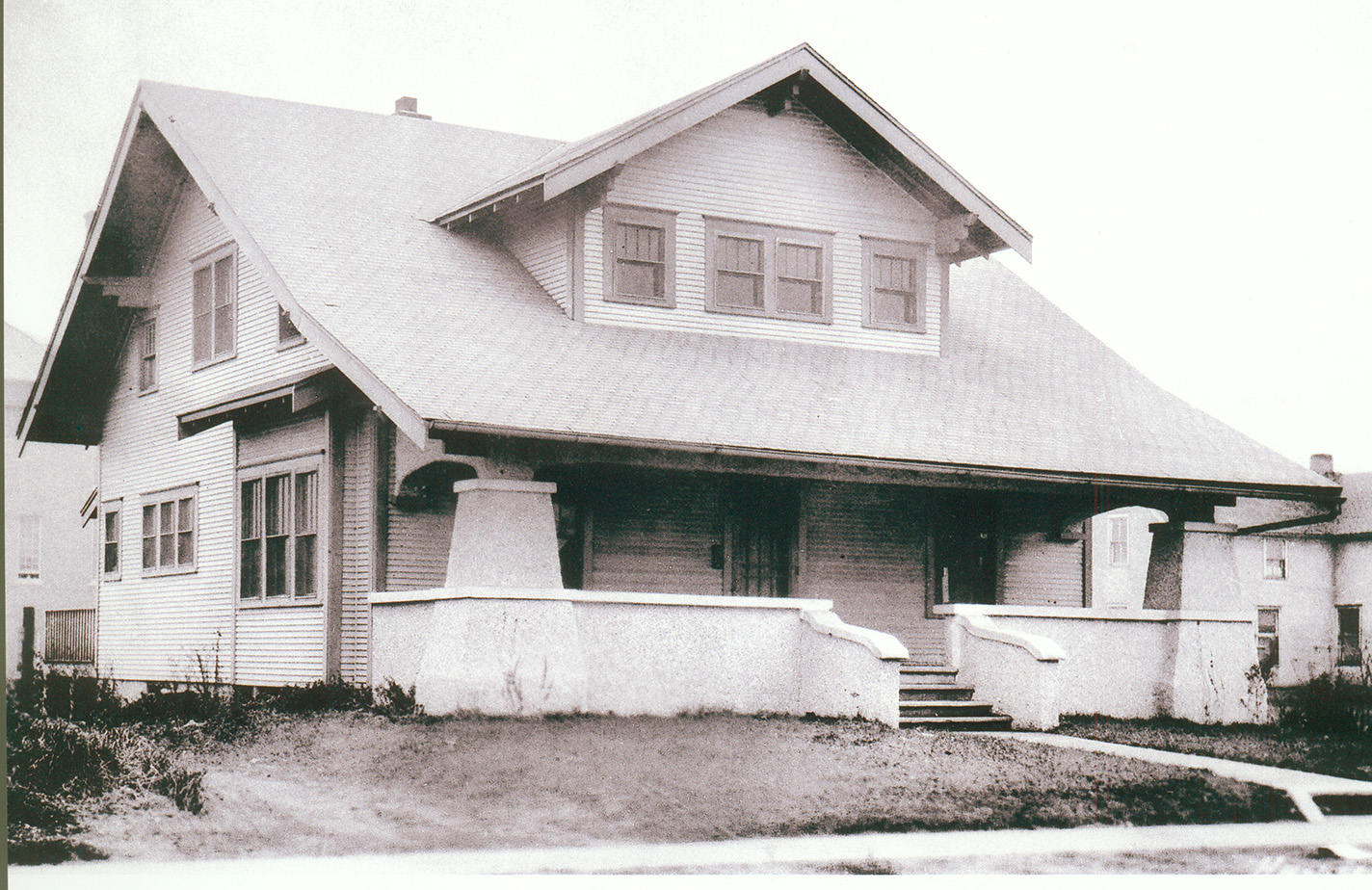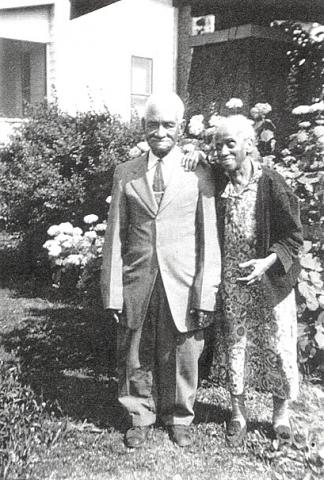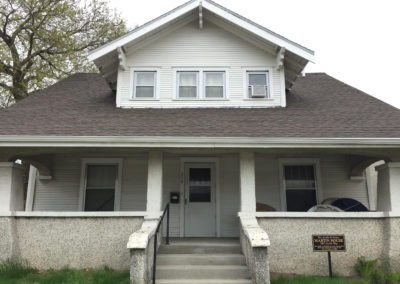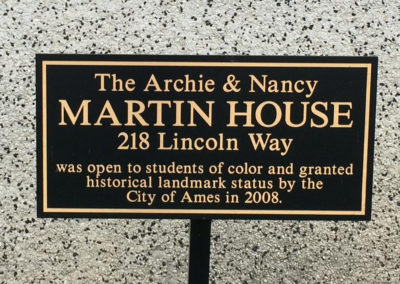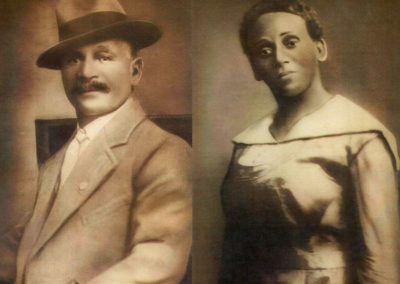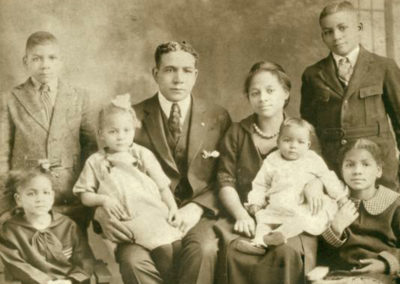During Black History Month we pay tribute to a sometimes overlooked, yet highly significant, piece of African American history that took place along the Lincoln Highway in Ames, Iowa.
Iowa State College founded in 1858 (now Iowa State University) allowed students of color to attend. But up until the 1940s, they did not have access to on-campus housing unless they roomed together. This “unofficial” policy made student housing nearly impossible due to the low number of students of color enrolled during this time. Meanwhile, two caring individuals, Archie and Nancy Martin opened their home in Ames as a place for male students of color to reside and grow while pursuing their college education. Female students of color were welcomed into the nearby home of John and Nellie Shipp at 118 Sherman Avenue. The Shipp’s daughter Mildred married Hubert Crouch, a student who stayed at the Martin home. Crouch later became the first African American awarded a doctorate in biological sciences at Iowa State University.
The Martin home provided comfort to a small but growing community of Black students, roomers, and visitors including the agricultural scientist, inventor, and first Black student to graduate from Iowa State Agricultural College – George Washington Carver.
Like Carver, the Martins were born into slavery. Nancy migrated north at the age of 60 after impressing Drs. Davis and Jennie Ghrist of Ames with her talent for preparing delicious southern-cooked meals. She took a job cooking for the Ghrists and at a fraternity house on campus. Archie soon joined her in 1914 and began working for the Chicago and Northwestern Railroad.
From the late 1920s through the early 50s, the Martin household gained a reputation as caring, generous, and supportive of those seeking to better themselves through higher education. Finally, it became apparent to the Martins that they could no longer house all the students of color in need. According to family tradition, Archie used his enthusiasm as a proponent of equal treatment of Black students to discuss the issue with then Iowa State College President (1912-1926) Raymond A. Pearson which eventually resulted in the ability for students of color to reside in campus housing.
For over a century, the Martin-Shipp families have retained ownership of the home. It still stands along the Lincoln Highway Heritage Byway in Iowa. Archie and three of his sons built the six-bedroom, two-bath Craftsman-style bungalow at 218 Lincoln Way sometime around 1919. The home was granted historical landmark status by the City of Ames in 2008. A letter of preliminary eligibility for listing on the National Register of Historic Places was obtained from the State Historic Preservation Office in 2021.
According to former Ames councilperson and Ames Historic Museum Martin House Chair Sharon Wirth, the Martins’ history is important to the Ames community and Iowa State.
“Their home symbolizes the family’s legacy,” said Wirth, “This property is an outstanding cultural resource located on the Lincoln Highway and should be preserved. Few resources remain that are tied directly to the early lives of African Americans in Ames. This period of ownership by a Black family is nearly unheard of.”
Besides Carver, other notable guests at the Martin home include Iowa State College African American athlete Jack Trice who tragically died as a result of injuries he sustained during the second play of his second college football game. Additional guests at the Martin home included James Bowman who served with the Tuskegee Airmen and as a Des Moines school administrator, and Samuel Massie who worked on the Manhattan Project and became the first black professor at the U.S. Naval Academy.
In the words of the Martin Legacy Foundation, “The Martins impact on black students in Ames and on the Iowa State campus can be measured in numerous ways. Mainly their legacy is traced by the successful stories of many who stayed with them. There are numerous educators, professors, administrators, presidents of universities, and engineers that fondly remember the Martin home and acknowledge that, if not for the Martins, they would not have had the chance at an education at Iowa State University. Nancy and Archie knew and believed that an education was the only way for African Americans (to achieve an improved) quality of life. They were wholeheartedly dedicated to supporting African American students in their quest for a (higher) education. Their legacy lives on in the achievements of those students and also through their descendants who are doctors, lawyers, decorated military officers, and educators. An amazing legacy for two ex-slaves.”
In honor of the Martins, the Iowa Board of Regents approved renaming Iowa State University Suite 2 residence hall in the Union Drive neighborhood to Archie and Nancy Martin Hall. Additionally, the Martins and their home are commemorated with a brick pier at 5th Street and Burnett Avenue in Downtown Ames.

